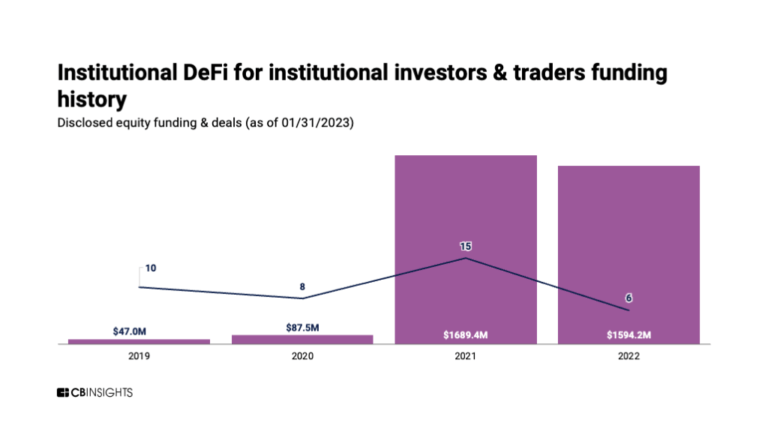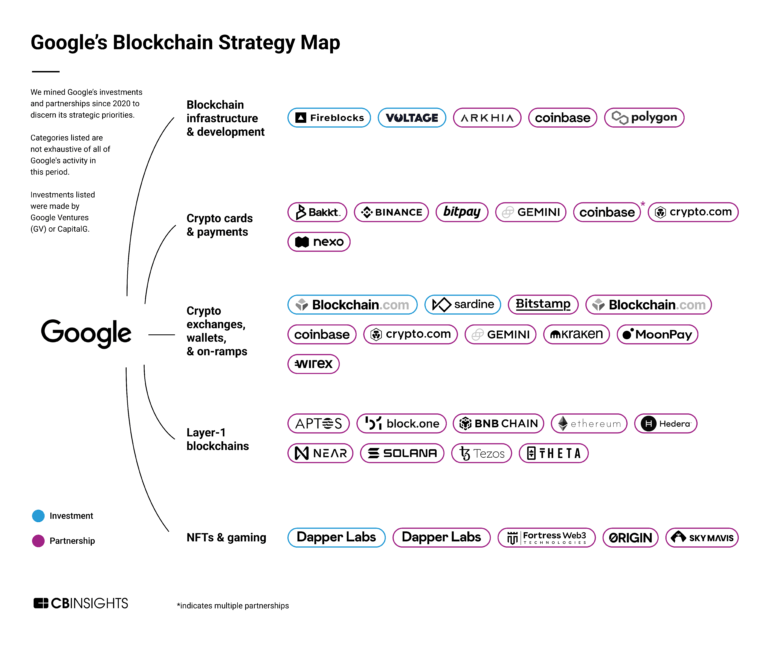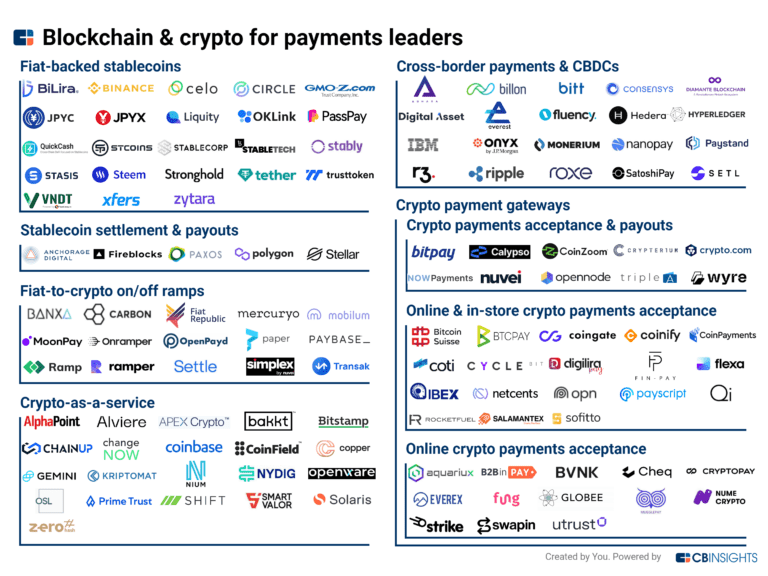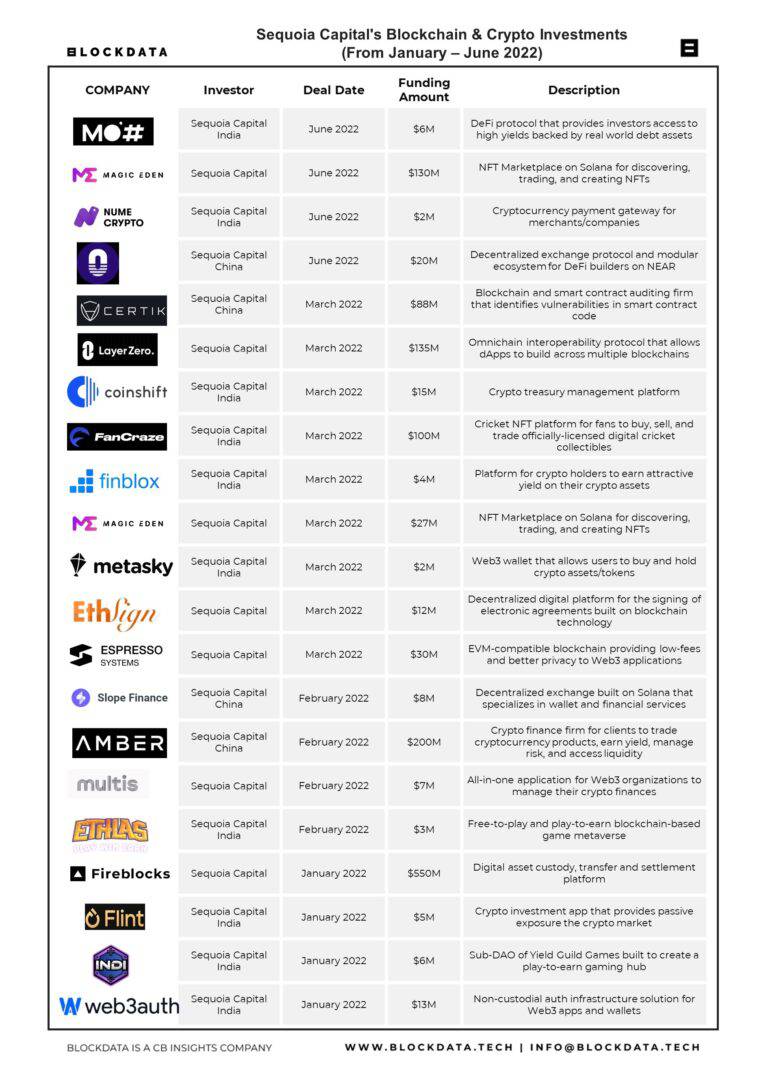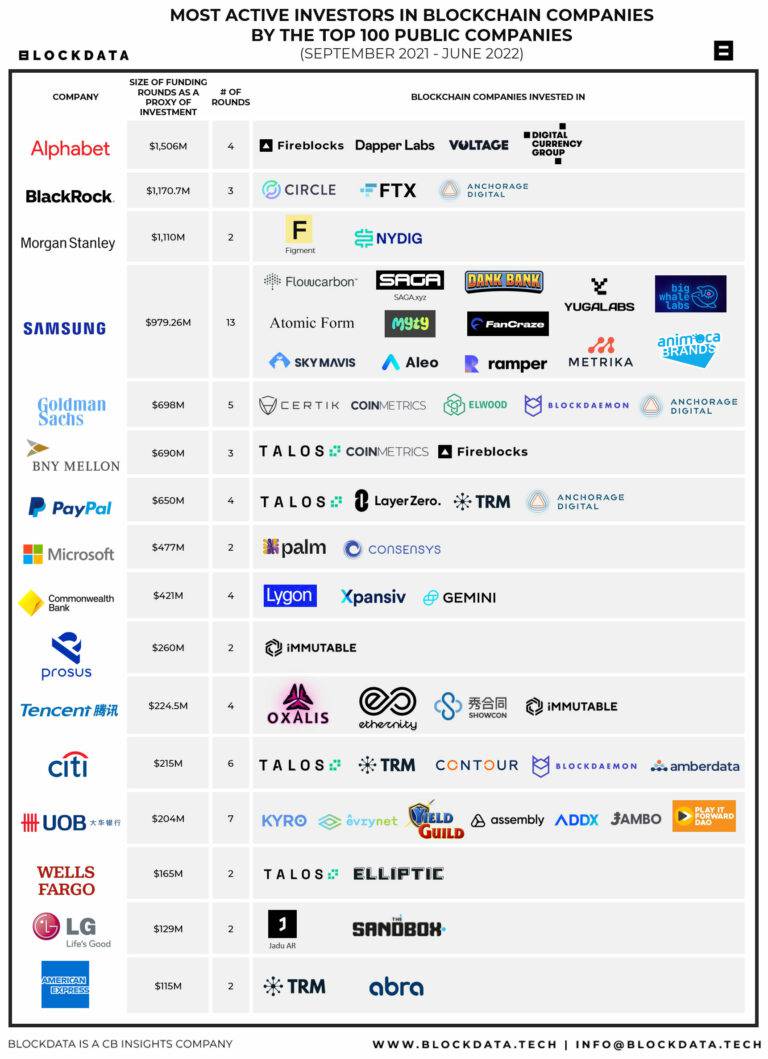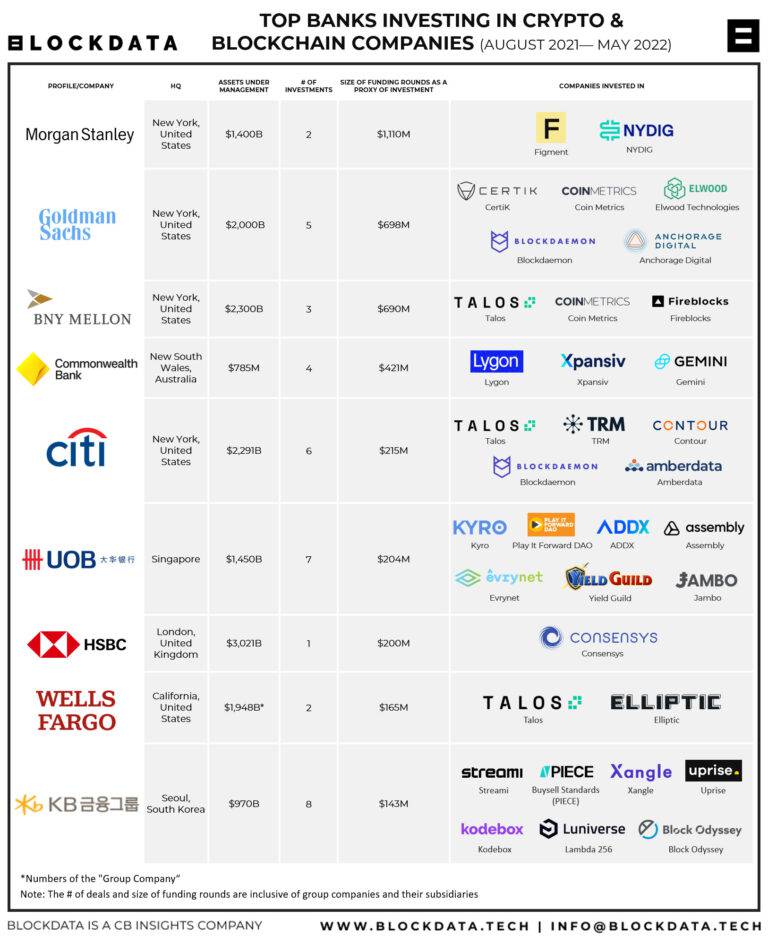
Fireblocks
Founded Year
2018Stage
Unattributed VC | AliveTotal Raised
$1.039BMosaic Score The Mosaic Score is an algorithm that measures the overall financial health and market potential of private companies.
+62 points in the past 30 days
About Fireblocks
Fireblocks provides infrastructure for digital asset operations in the financial technology sector. The company offers services including custody and management of crypto operations, wallet solutions, token creation and distribution, and facilitation of blockchain payments. Fireblocks serves trading firms, financial technologies, financial institutions, and web3 companies. It was founded in 2018 and is based in New York, New York.
Loading...
ESPs containing Fireblocks
The ESP matrix leverages data and analyst insight to identify and rank leading companies in a given technology landscape.
The stablecoin settlement & payouts market refers to the use of stablecoins, which are cryptocurrencies designed to maintain a stable value, for settling transactions and making payouts. This market offers a fast and cost-effective way to move money across borders and provides access to financial services in emerging markets. Technology vendors in this market offer solutions for digital asset cust…
Fireblocks named as Leader among 7 other companies, including Circle, Stellar, and Aptos Labs.
Loading...
Research containing Fireblocks
Get data-driven expert analysis from the CB Insights Intelligence Unit.
CB Insights Intelligence Analysts have mentioned Fireblocks in 8 CB Insights research briefs, most recently on Feb 23, 2023.
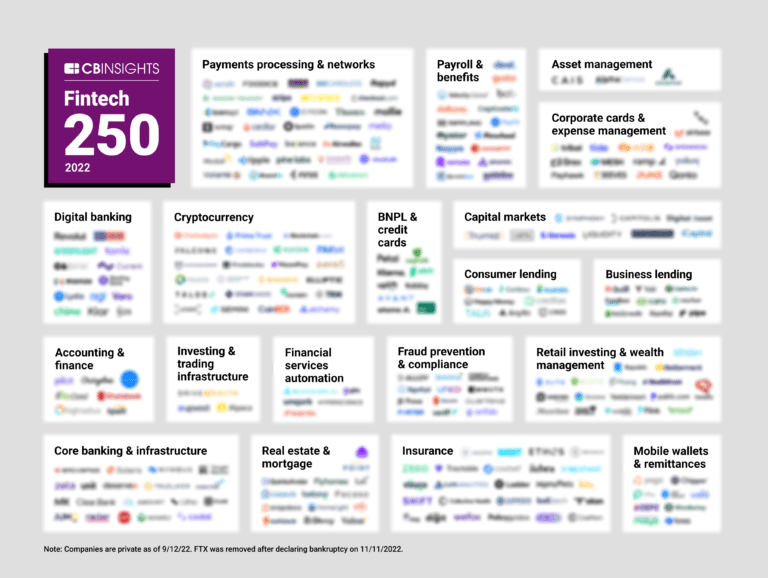
Oct 4, 2022 report
The Fintech 250: The most promising fintech companies of 2022Expert Collections containing Fireblocks
Expert Collections are analyst-curated lists that highlight the companies you need to know in the most important technology spaces.
Fireblocks is included in 6 Expert Collections, including Unicorns- Billion Dollar Startups.
Unicorns- Billion Dollar Startups
1,270 items
Blockchain
12,616 items
Companies in this collection build, apply, and analyze blockchain and cryptocurrency technologies for business or consumer use cases. Categories include blockchain infrastructure and development, crypto & DeFi, Web3, NFTs, gaming, supply chain, enterprise blockchain, and more.
Fintech
9,466 items
Companies and startups in this collection provide technology to streamline, improve, and transform financial services, products, and operations for individuals and businesses.
Blockchain 50
100 items
Fintech 100
499 items
250 of the most promising private companies applying a mix of software and technology to transform the financial services industry.
Silicon Valley Bank's Fintech Network
88 items
We mapped out some of SVB's biggest clients, partnerships, and sectors that it serves using CB Insights’ business relationship data from SVB’s profile to uncover just how important it is to the fintech universe. The list is not exhaustive.
Fireblocks Patents
Fireblocks has filed 5 patents.
The 3 most popular patent topics include:
- alternative currencies
- cryptocurrencies
- bitcoin

Application Date | Grant Date | Title | Related Topics | Status |
|---|---|---|---|---|
11/29/2021 | 8/20/2024 | Data security, Computer security, Cryptography, Computer network security, National security | Grant |
Application Date | 11/29/2021 |
|---|---|
Grant Date | 8/20/2024 |
Title | |
Related Topics | Data security, Computer security, Cryptography, Computer network security, National security |
Status | Grant |
Latest Fireblocks News
Apr 11, 2025
Since the beginning of February, the SEC's Crypto Task Force has met with over 40 influential crypto sector organisations and individuals, including, amongst others, Michael Saylor, Chainlink, Coinbase, Crypto.com, Robinhood and Circle. Although each meeting attendee has come with its own particular set of specific ‘wants', taken together, these meetings and requests have centered on five key industry asks. 1. Establishing Clear Regulatory Frameworks A predominant concern among crypto enterprises is the continued ambiguity surrounding the classification and regulation of digital assets. While it's good news that the SEC is stepping back from many of its legal actions against crypto companies, that, and Executive Orders from President Trump, are not ‘black letter' law. This is something that has been pointed out recently by Bitgo's CEO Mike Belshe and many others. Without codified laws and regulations in the books, the crypto sector remains very restrained in terms of its willingness to bring new financial products to market. The Wall Street Blockchain Alliance, for example, emphasized the need for a formal and transparent framework to distinguish between digital securities and non-securities. They advocated for criteria that consider factors like decentralization and network functionality, and proposed a time-limited safe harbor to allow projects to develop without immediate enforcement risks, provided they meet transparency and disclosure requirements. Similarly, Chainlink Labs discussed the importance of token taxonomy and the SEC's jurisdiction over specific transactions. They explored how initiatives like Safe Harbor X could align with forthcoming market structure reforms, and addressed modernizing securities record-keeping to accommodate emerging tokenized securities markets. 2. Developing Practical Compliance Pathways The challenge of navigating existing registration processes, which may not be well-suited for token-based projects, was a recurring topic. The Wall Street Blockchain Alliance recommended establishing a modified securities offering framework tailored for digital asset issuances, akin to Regulation A+. They also suggested a streamlined disclosure regime that accounts for the unique characteristics of blockchain projects and proposed a sandbox program for firms to test compliance models under SEC supervision before full registration. For its part, Robinhood Markets highlighted the need for a provisional regulatory framework that includes registration requirements, books-and-records obligations, antifraud protections, custody requirements, and transaction reporting. They emphasized that such a framework could provide much-needed clarity and stability while fostering innovation. 3. Addressing Custody and Safekeeping of Digital Assets Further to the question of custody, ensuring the security of digital assets remains a critical focus. Fireblocks underscored the importance of developing robust infrastructure for digital asset custody and safekeeping. The company advocated for integrating new risk mitigation strategies and leveraging best practices related to cybersecurity, access management, and key management to protect investors and maintain market integrity. 4. Recognizing the Unique Nature of Stablecoins The regulation of stablecoins, particularly payment stablecoins like USD Coin (USDC), was another significant discussion point. Circle (which is the principal issuer of USD Coin) argued that certain payment stablecoins should not be classified as securities due to their design and use cases. They proposed that the SEC provide guidance clarifying the non-applicability of securities laws to these stablecoins, which could facilitate their broader adoption and integration into the financial system. 5. Embracing the Potential of Tokenization The current hype narrative in many blockchain presales, is that the tokenization of traditional assets (real-world assets or ‘RWA) presents opportunities for increased efficiency and accessibility in capital markets. Digital Asset Holdings highlighted the benefits of using blockchain technology for tokenizing traditional securities, such as real-time settlement and improved capital utilization. They called for regulatory clarity to accelerate innovation while upholding principles of fair and efficient markets. Looking to the SEC for assistance with Real World Assets , in particular, is a really big ask. Why? Well let's look at the most often talked about ‘low hanging fruit' for RWA on the blockchain – the property sector. Projects like Rexas Finance and many others frequently talk about fractionalizing high-value assets like real estate, so crypto investors can “own a piece” of traditionally illiquid markets. While that sounds revolutionary, real estate is arguably the worst place to start. Property ownership in the US and worldwide isn't just about holding a token that says you own part of a building. It's deeply embedded in local laws, title registries, zoning codes, and tax systems, all of which vary wildly by local jurisdiction. You can't bypass or “disrupt” the courthouse. Despite what many blockchain projects are pitching, at the end of the day, most ownership is legally recognized through government infrastructure, not a blockchain. Intellectual property rights is another RWA frequently touted as the next big thing in tokenization. It's another one that's great in theory – but will likely never be worked out – I wrote a piece on why here. Conclusion Based on the documents seen so far, the crypto industry isn't asking the SEC for a free pass—it's asking for a playbook – for rules . While the sector's wishlist spans everything from stablecoin clarity to compliance sandboxes, the real sticking point is the same across the board: legal certainty. Without it, innovation stalls, capital stays sidelined, and the promise of tokenized everything remains just that—a promise. The SEC's willingness to listen is a good start. But until talk turns into actual policy and legislation, the US crypto sector will remain in a kind of optimistic limbo. Source: https://bravenewcoin.com/insights/inside-the-secs-crypto-task-force-the-5-things-blockchain-giants-are-asking-for
Fireblocks Frequently Asked Questions (FAQ)
When was Fireblocks founded?
Fireblocks was founded in 2018.
Where is Fireblocks's headquarters?
Fireblocks's headquarters is located at 500 Fashion Avenue, New York.
What is Fireblocks's latest funding round?
Fireblocks's latest funding round is Unattributed VC.
How much did Fireblocks raise?
Fireblocks raised a total of $1.039B.
Who are the investors of Fireblocks?
Investors of Fireblocks include Haun Ventures, Tenaya Capital, Paradigm, BAM Elevate, Coatue and 26 more.
Who are Fireblocks's competitors?
Competitors of Fireblocks include Bosonic, Hex Trust, Ripple, CheckSig, Taurus and 7 more.
Who are Fireblocks's customers?
Customers of Fireblocks include Customer Name: Revolut , Crypto.com and GMO Trust.
Loading...
Compare Fireblocks to Competitors

Copper is a technology company that focuses on providing secure digital asset services to institutional investors within the cryptocurrency sector. The company offers a suite of solutions, including institutional custody, prime brokerage services, and collateral management, all designed to facilitate secure and efficient digital asset transactions. Copper primarily caters to hedge funds, trading firms, foundations, exchanges, ETP providers, venture capital funds, and miners seeking advanced infrastructure for managing digital assets. It was founded in 2018 and is based in Zug, Switzerland.

BitGo provides digital asset custody and financial services within the cryptocurrency sector. It offers secure wallet solutions, qualified custody, and financial services including trading, financing, and wealth management. It serves institutional investors, trading firms, investment advisors, exchanges, retail platforms, and developers. It was founded in 2013 and is based in Palo Alto, California.

Ledger involved in the security and management of digital assets in the cryptocurrency domain. The company offers hardware wallets for storing cryptocurrencies, as well as a companion application for managing and interacting with digital assets. Ledger's products are available for individual consumers and institutional investors, focusing on storage, transaction, and portfolio management. It was founded in 2014 and is based in Paris, France.

Anchorage Digital offers a cryptocurrency platform that provides financial services and infrastructure solutions for institutions. It offers services including custody, staking, trading, and governance for digital assets. Anchorage Digital serves sectors such as wealth management, venture capital firms, governments, exchange-traded fund (ETF) issuers, and asset managers. It was founded in 2017 and is based in San Francisco, California.

Hex Trust offers services including custody, staking, and market services for digital assets. Hex Trust serves protocols, foundations, financial institutions, and the Web3 and Metaverse sectors. It was founded in 2018 and is based in Hong Kong, Hong Kong.
Vaultavo is a Digital Asset Custody and Security Tech Provider specializing in the finance, crypto, blockchain, DLT, and web3 domains. The company offers a range of products including a biometric smart card for secure digital key management, secure vaults for asset storage, and a SaaS platform to facilitate digital asset transactions. Vaultavo's solutions cater to institutions and businesses seeking advanced custody and self-custody of private keys, with a focus on security, accessibility, and ease of use. It was founded in 2021 and is based in New York, New York.
Loading...

